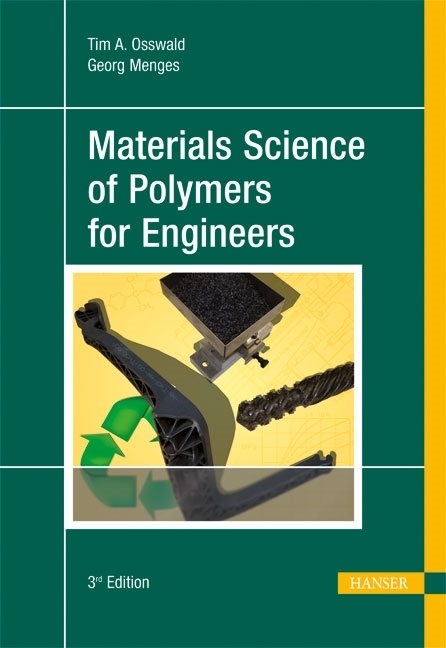Ulteriori informazioni
This unified approach to polymer materials science is divided in three major sections: - Basic Principles - covering historical background, basic material properties, molecular structure, and thermal properties of polymers.- Influence of Processing on Properties - tying processing and design by discussing rheology of polymer melts, mixing and processing, the development of anisotropy, and solidification processes.- Engineering Design Properties - covering the different properties that need to be considered when designing a polymer component - from mechanical properties to failure mechanisms, electrical properties, acoustic properties, and permeability of polymers.A new chapter introducing polymers from a historical perspective not only makes the topic less dry, but also sheds light on the role polymers played, for better and worse, in shaping today's industrial world. The first edition was praised for the vast number of graphs and data that can be used as a reference. A new table in the appendix containing material property graphs for several polymers further strengthens this attribute. The most important change made to this edition is the introduction of real-world examples and a variety of problems at the end of each chapter.
Sommario
From the contents:
- Introduction to Polymers
- Historical Background
- Structure of Polymers
- Thermal Properties of Polymers
- Rheology of Polymer Melts
- Introduction to Processing
- Anisotropy Development During Processing
- Solidification of Polymers
- Mechanical Behavior of Polymers
- Failure and Damage of Polymers
- Electrical Properties of Polymers
- Optical Properties of Polymers
- Permeability Properties of Polymers
- Acoustic Properties of Polymers
Info autore
Tim A. Osswald, Ph.D., is Kuo K. and Cindy F. Wang Professor at the University of Wisconsin-Madison College of Engineering and Honorary Professor of Plastics Technology at the University of Erlangen-Nuremberg and the National University of Colombia. He is the author of many books and book chapters, as well as over 100 papers in the field of plastics technology.
Prof. Dr.-Ing. Georg Menges ist emeritierter Professor an der RWTH Aachen.
Riassunto
This unified approach to polymer materials science is divided in three major sections:
- Basic Principles - covering historical background, basic material properties, molecular structure, and thermal properties of polymers.
- Influence of Processing on Properties - tying processing and design by discussing rheology of polymer melts, mixing and processing, the development of anisotropy, and solidification processes.
- Engineering Design Properties - covering the different properties that need to be considered when designing a polymer component - from mechanical properties to failure mechanisms, electrical properties, acoustic properties, and permeability of polymers.
A new chapter introducing polymers from a historical perspective not only makes the topic less dry, but also sheds light on the role polymers played, for better and worse, in shaping today's industrial world.
The first edition was praised for the vast number of graphs and data that can be used as a reference. A new table in the appendix containing material property graphs for several polymers further strengthens this attribute.
The most important change made to this edition is the introduction of real-world examples and a variety of problems at the end of each chapter.
Testo aggiuntivo
"Anspruchsvolles Grundwissen in Englisch." Johannes Kunz, Kunststoffe, März 2013
Relazione
"Anspruchsvolles Grundwissen in Englisch." Johannes Kunz, Kunststoffe, März 2013

